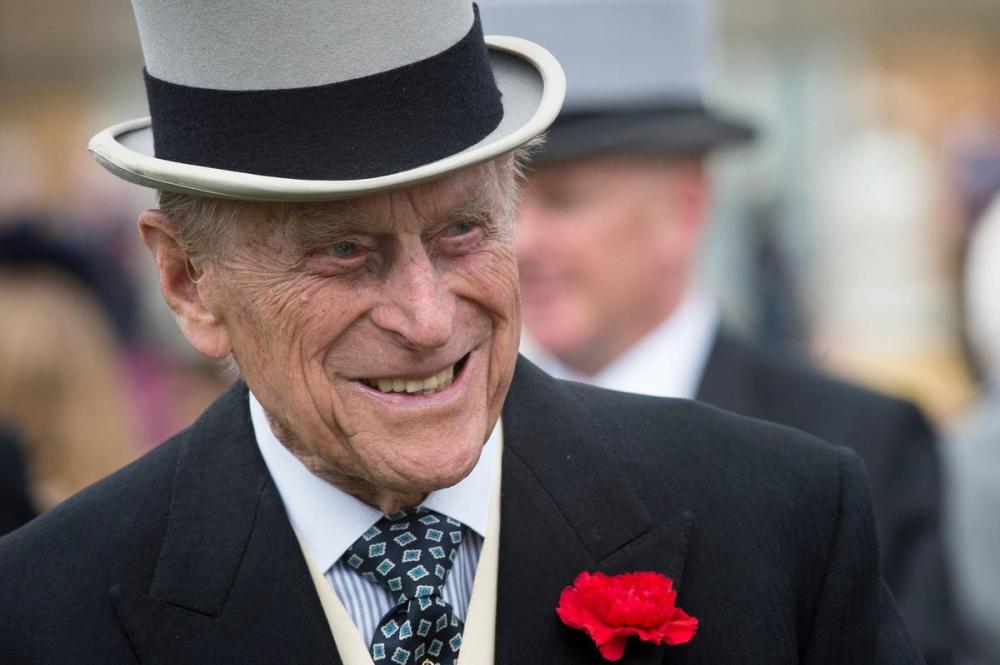Prince Philip was a man of his time and class, for better and for worse
Advertisement
Read this article for free:
or
Already have an account? Log in here »
To continue reading, please subscribe:
Monthly Digital Subscription
$0 for the first 4 weeks*
- Enjoy unlimited reading on winnipegfreepress.com
- Read the E-Edition, our digital replica newspaper
- Access News Break, our award-winning app
- Play interactive puzzles
*No charge for 4 weeks then price increases to the regular rate of $19.00 plus GST every four weeks. Offer available to new and qualified returning subscribers only. Cancel any time.
Monthly Digital Subscription
$4.75/week*
- Enjoy unlimited reading on winnipegfreepress.com
- Read the E-Edition, our digital replica newspaper
- Access News Break, our award-winning app
- Play interactive puzzles
*Billed as $19 plus GST every four weeks. Cancel any time.
To continue reading, please subscribe:
Add Free Press access to your Brandon Sun subscription for only an additional
$1 for the first 4 weeks*
*Your next subscription payment will increase by $1.00 and you will be charged $16.99 plus GST for four weeks. After four weeks, your payment will increase to $23.99 plus GST every four weeks.
Read unlimited articles for free today:
or
Already have an account? Log in here »
Hey there, time traveller!
This article was published 09/04/2021 (1708 days ago), so information in it may no longer be current.
Prince Philip was nothing if not a man of his time and his class — for better and sometimes for worse.
He embodied a certain ideal of duty, one now very much out of fashion but which served him, his country and the Royal Family rather well until, eventually, it didn’t.
It was an austere ideal, one that valued self-discipline, self-denial and personal sacrifice amid all the privileges and luxury that came with being born a prince and marrying into the most famous family in the world.

Philip lived that ideal, starting with distinguished service in the Royal Navy during the Second World War and continuing for seven decades as the Queen’s consort, always careful to remain loyally in the shadow of the monarch herself. The role obviously frustrated him — “I’m just a lodger” at Buckingham Palace, he once complained — but he carried on regardless, decade after decade.
All that seems very old-fashioned now. So it’s hard to remember that Philip was in some ways ahead of his time. He was an outspoken environmentalist long before that became fashionable. And despite his forbidding image he actually helped to nudge the monarchy toward greater openness at a time when it seemed to be drifting into irrelevance.
He was one of those behind the decision in the 1960s to invite TV cameras to document the royals at work and play at their Scottish retreat, Balmoral. The resulting program showed them as almost-normal people, with Philip famously working the barbeque. It was a huge step in portraying them as an actual family, a fabulously privileged one of course, but a family nonetheless rather than an abstract institution.
At the same time, Philip exhibited the flaws and faults of his time. He came from a time and a place when a man of his class could blurt out exactly what was on his mind and offend whoever he felt like, without regrets and certainly without consequences.
So there was the string of offensive and even outright racist remarks (who can forget “slitty eyes” on one Asian tour?) that made him the royal figure who so many people loved to hate. Anyone who’s had a father or grandfather from Philip’s generation (he was born in 1921), especially a British one, will recognize the occasional cringe-worthy outbursts.
Eventually Philip’s antiquated ideal of duty crashed onto the rocks of modernity. A younger generation of royals put their own happiness ahead of the needs of the Royal Family as an institution. Unlike royals of Philip’s vintage, they were not willing to stifle themselves for the sake of keeping up appearances, and the press was not willing to draw a veil over their private indulgences. It was the end of a certain kind of upper-class hypocrisy, and good riddance.
The ultimate rejection of Philip’s era may have come just a few weeks ago when one of his grandsons, Prince Harry, and his wife Meghan Markle sat with the ultimate confessor, Oprah Winfrey, to air yet more dirty royal laundry.
Harry and Meghan refused to put up with abuse from the Royal Family and its courtiers, and certainly not for the sake of shielding the institution from public scrutiny. They’ve chosen to walk their own path, on their own terms, and it could hardly be more different from that old notion of duty that died long before Prince Philip himself.
His passing was hardly unexpected; he was 99 and in failing health. But it inevitably serves as a reminder that the end of the second Elizabethan age cannot be far off. The Queen turns 95 in less than two weeks, and as Philip helped to reinvent the monarchy in his time, his successors will have to do the same in theirs.
They can learn much from his ideal of duty, however outmoded it may seem now.


